Test Driving the Long-Awaited 2021 Bronco
Call it a comeback. The Ford Bronco two- and four-door SUVs are finally here, rolling off the line in Wayne, MI, heading to deliver 4×4 love to the first of the customers currently in line for one. It’s been a long wait: The last time we had a 4×4 Bronco was model year 1996, and Ford has been teasing a boxy, retro reboot of the off-roader since 2004. But last week in Austin, Texas, Ford finally turned over the key-fobs and let us have a go of it, both on the streets of the Texas capital and over miles of tough Hill Country trail. Here’s what we found out:
1. It’s a hit.
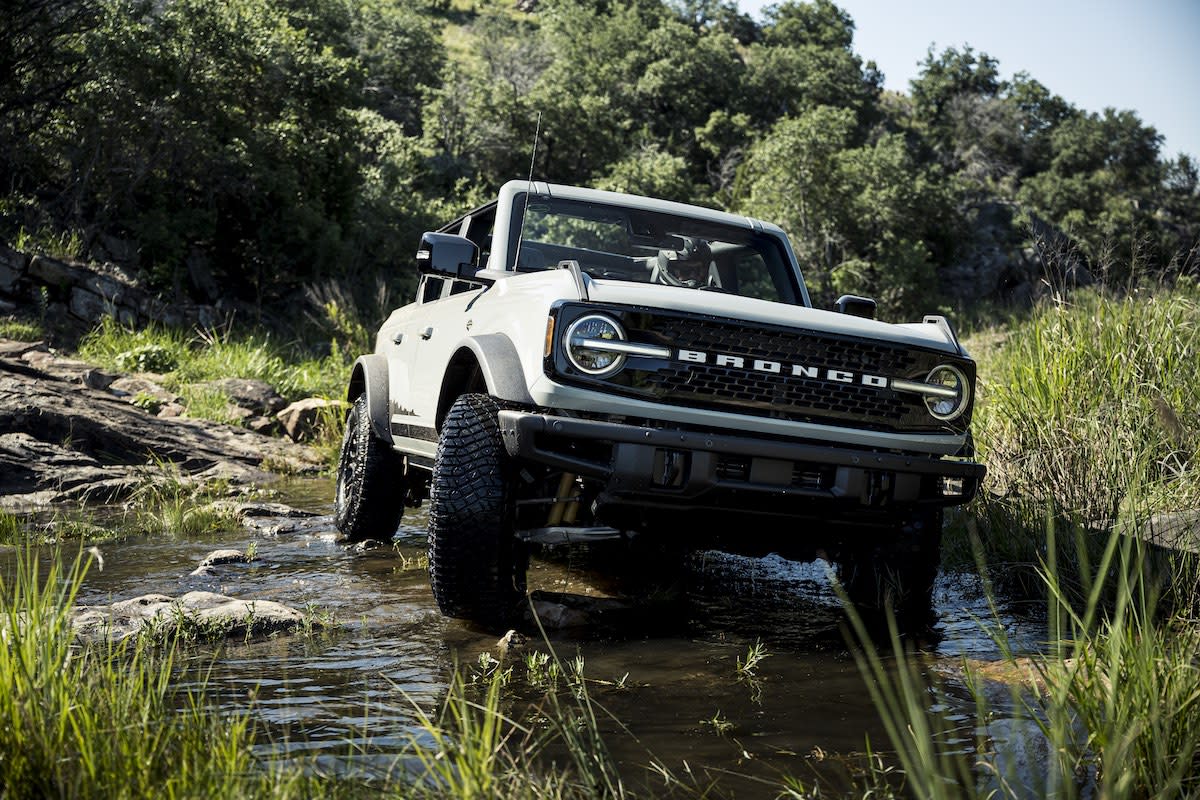
Just a few miles into our drive in an optioned-up $48,450 “Outer Banks” model, it became clear that Ford didn’t half-ass it with the Bronco. It isn’t simply a Wrangler wannabe built on Ford’s Ranger platform. The Bronco is a fully realized machine with driving dynamics that are more fluid on-road than the Wrangler—and a smart, uncluttered interior with ample but unobtrusive tech that’s more akin to the upmarket Land Rover Defender. If you’re in the market for either, you owe it to yourself to seek out and test drive a Bronco. Its steering on the highway is responsive, rather than sleepy, courtesy an independent front suspension. Yet when you get it onto the trail, it’s ready to rock.
2. That’s not to say there aren’t compromises.
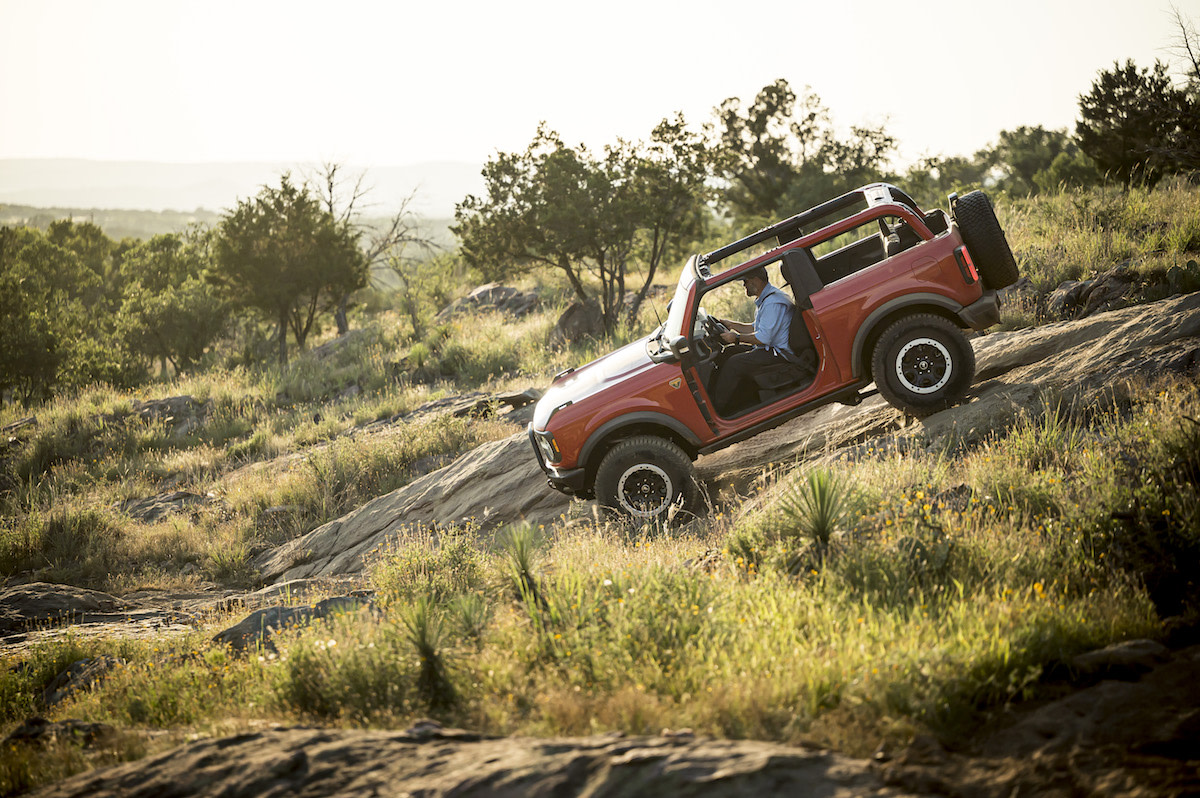
The Bronco features two Ecoboost engines: a 2.7-liter V6 that puts out 330 horsepower and 415 lb-ft of torque, and a 2.3-liter four, which puts out 300 horsepower and 325 lb.-ft of torque. The Outer Banks model we drove on-road had the 2.3 paired with a 10-speed automatic, and it effortlessly bounded up the hills of the Edwards Plateau west of Austin. The drawback: middling fuel economy. We didn’t quite see the 21-mpg rating quoted by Ford. It’s not significantly different than the rating for the Wrangler’s four—it’s just not a drastic improvement.
3. Ford built a wild machine. And it wants to bring you into the wild.
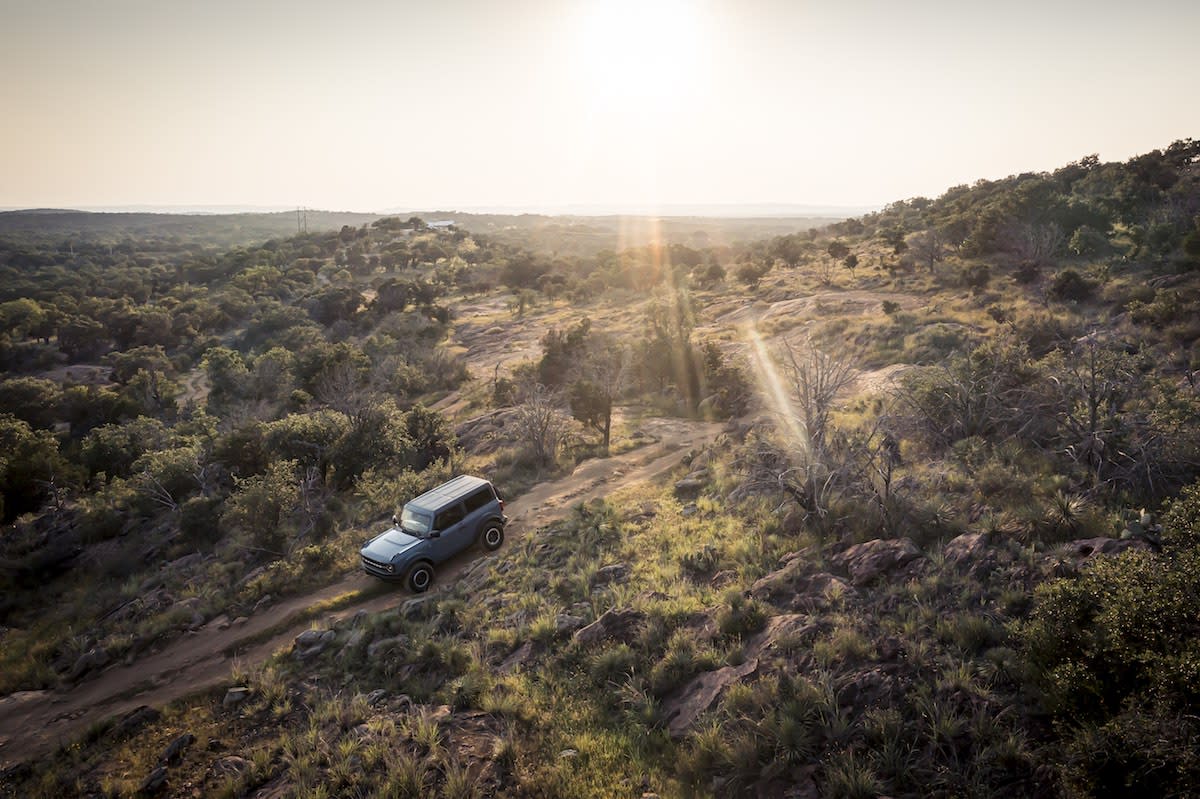
During the launch program, we got the chance to drive tens of miles of off-road trails that every Bronco customer will be able to experience. Called the “Bronco Off Roadeo,” it’s a test-drive event where buyers will learn about the off-road capabilities of their vehicle—even if they haven’t taken delivery of it yet. The Texas location wends around crags, dry streambeds, and rocky monoliths. Three other locations are in development: one outside Las Vegas, one spot in the Northeast TBD, and one near Moab. It’s part of an impressive effort to develop an off-roading community that may start to pick off even strident Jeep loyalists.
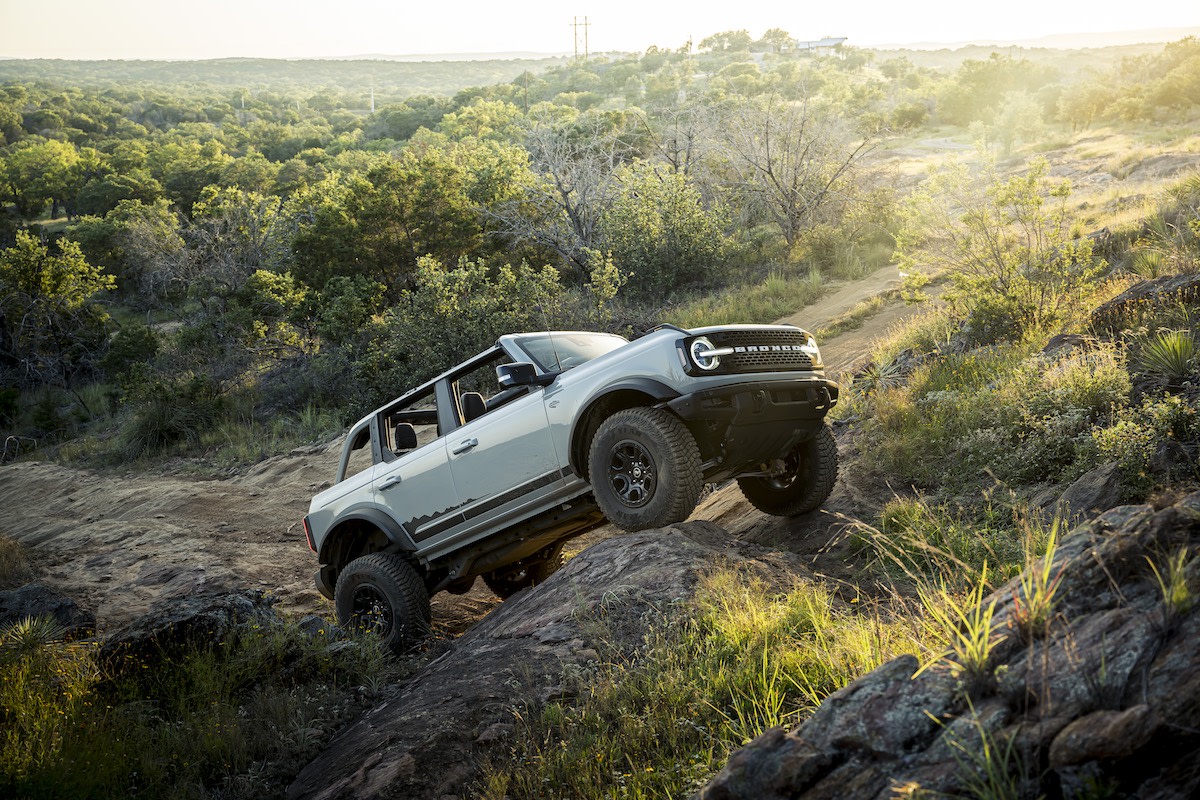
4. Its off-roading tech is eminently usable.
You’ll find something to like about the Bronco’s bucket of high-tech off-roading gadgetry, whether every piece of clothing you have is stained in red Moab dirt, or you’ve rarely left the pavement. Let’s start with the truck’s perfectly placed controls for its electronic locking differentials, which lend traction in hairy situations: dedicated buttons are mounted above the center stack, and we found them an exceptionally easy reach.
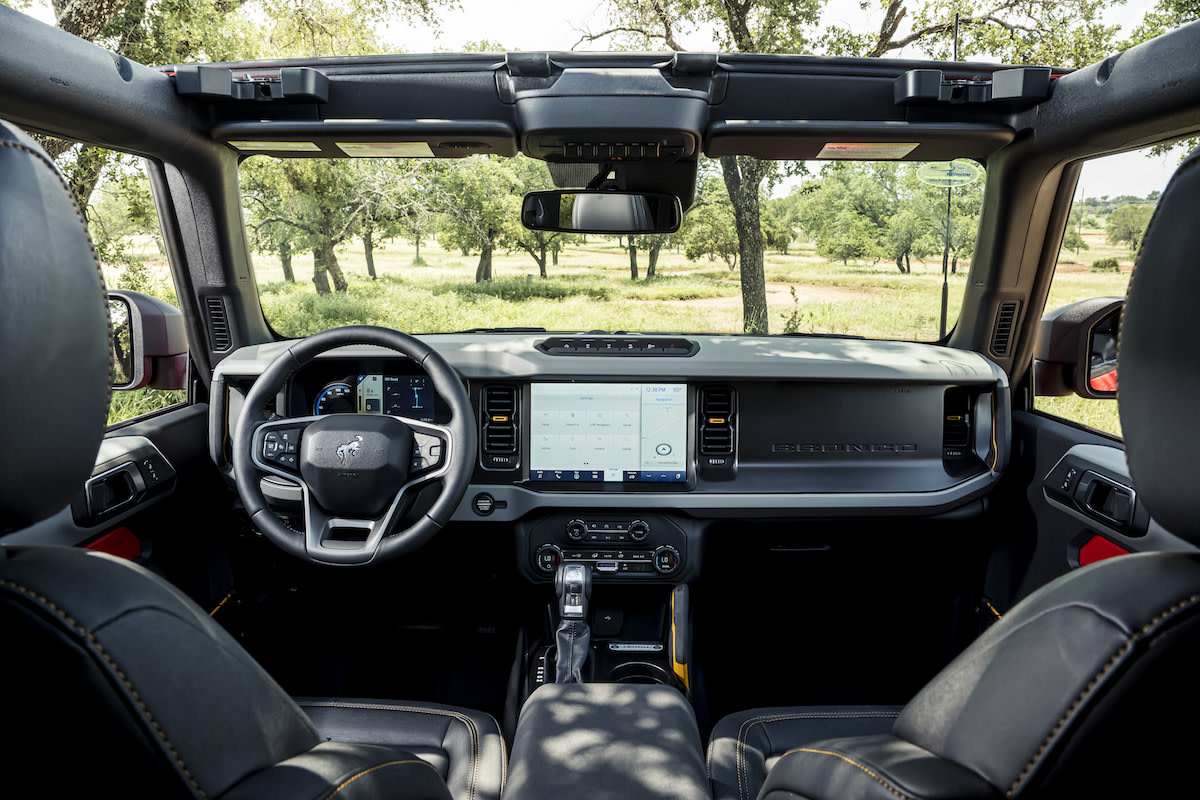
During a challenging, craggy uphill you can slam the button on either the front or rear diff for more traction, and quickly deactivate for better handling once you’re in the clear. Seasoned off-roaders will also appreciate the availability, in the Badlands model, of a push-button stabilizer bar disconnect. During a rock crawl we used it to instantly unleash the full articulation of the suspension—allowing a wheel that had been hanging in the air to gain traction. The Ford folks were quick to point out that the Wrangler can’t do this: The Bronco’s setup works even under a load, while the Wrangler needs to make the switch on flat ground.
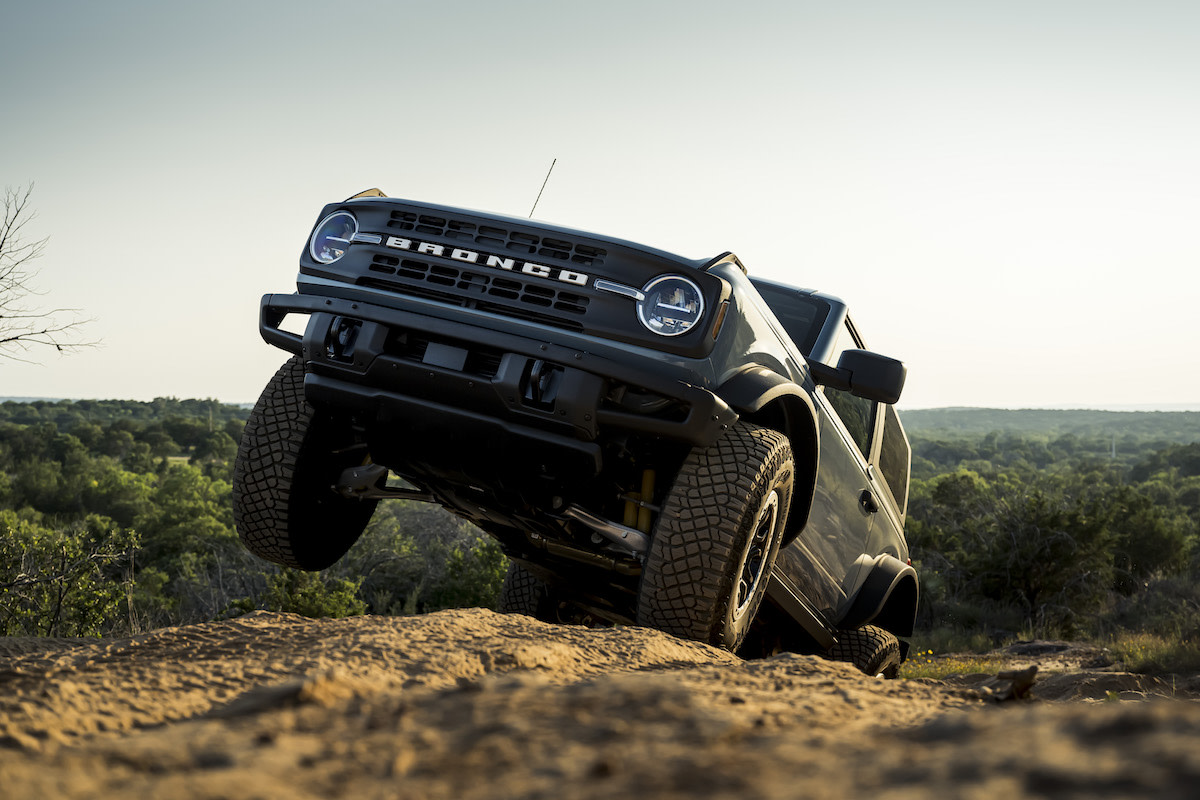
5. …and you don’t need to be a hardcore off-roader to use it.
We also dug a few of the Bronco’s other off-road features. We used one-pedal drive mode to cleanly and fluidly ascend a series of boulders, whereas without it we might have had a herky-jerky, quickly alternating, gas-with-the-right-foot, brake-with-the-left-situation. A feature called trail turn assist made it easier to get around tight turns by braking one rear wheel.
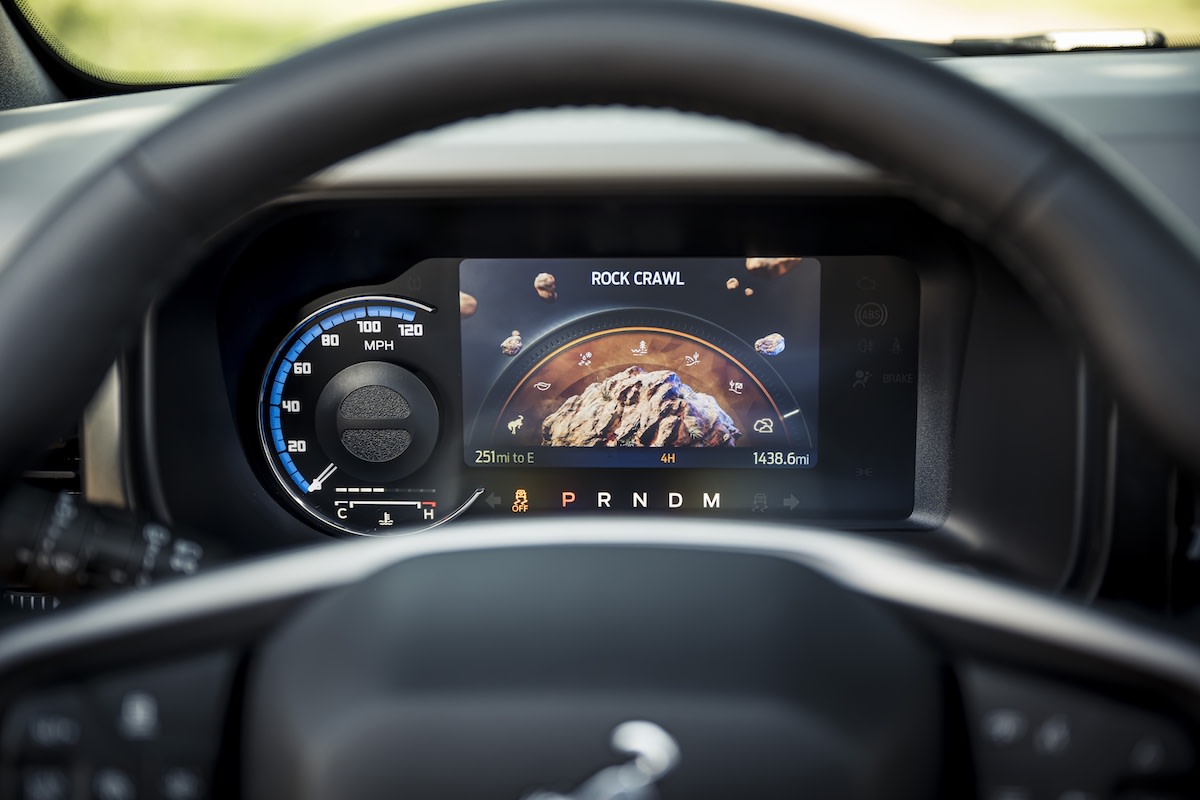
On a few turns the difference seemed minimal, but the feature seemed the most obvious in sand, where the Bronco clearly planted its foot—err, its wheel—down for the pivot. Yes, you might not need either feature if you’re Vaughn Gittin Jr. (who helped design the course). For the rest of us, though, these digital 4×4 smarts are pretty helpful.
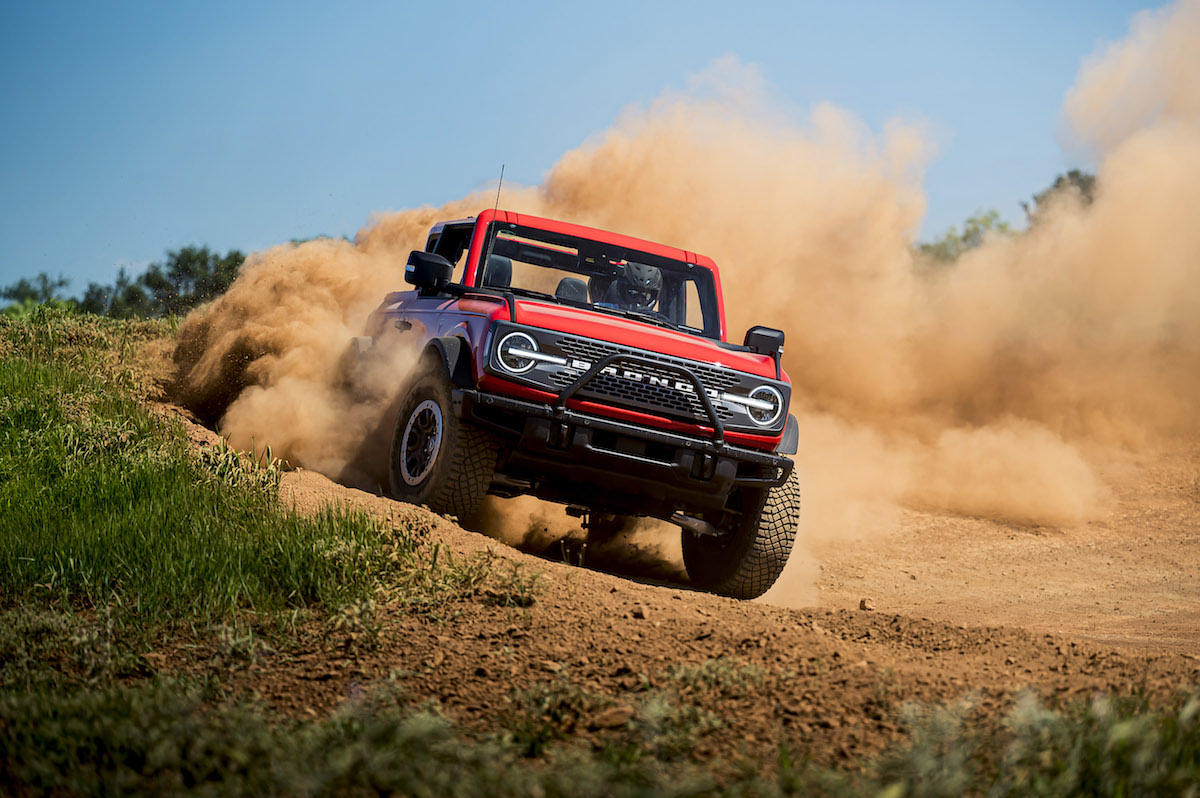
6. Put your hands up for the airbags in back.
Though the IIHS hasn’t released crash-test ratings for the new Bronco yet, we do know that it has at least one clear safety advantage over the Wrangler: side impact airbags hidden in the roof pillars. The Wrangler doesn’t have them. A Ford rep told us that the Wrangler’s omission of them is the result of a Federal Motor Vehicle Safety Standards loophole. Apparently, if the doors can be removed, side curtain airbags aren’t required. This is a plus for anyone, really, but especially for parents looking to use the Bronco as a daily-driving kid hauler.
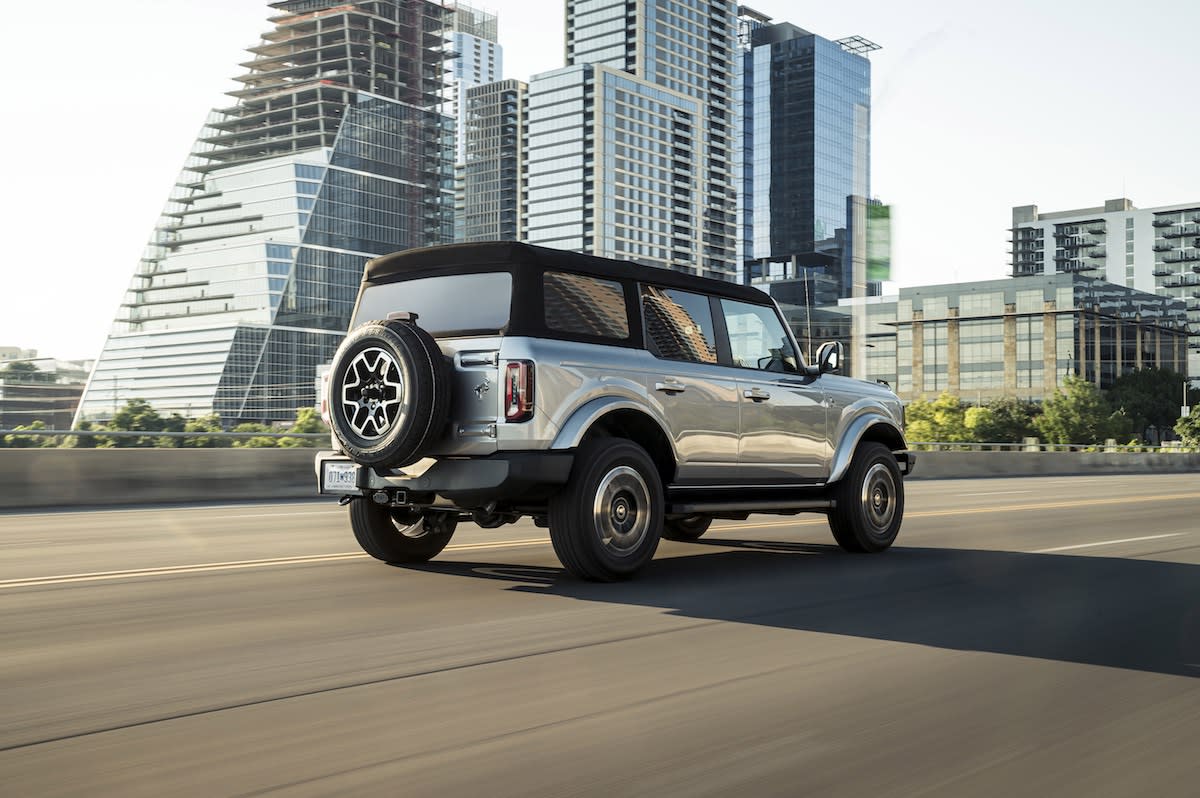
7. The accessory onslaught is coming.
Overland bros rejoice: Ford reps showed off some of the more than 200 aftermarket accessories already available for the Bronco, including a Yakima roof rack, flared fender kits, off road lighting options, and Warn Winches. There’s plenty more to come, of course. All of them are critical to make your machine look unique on Instagram.
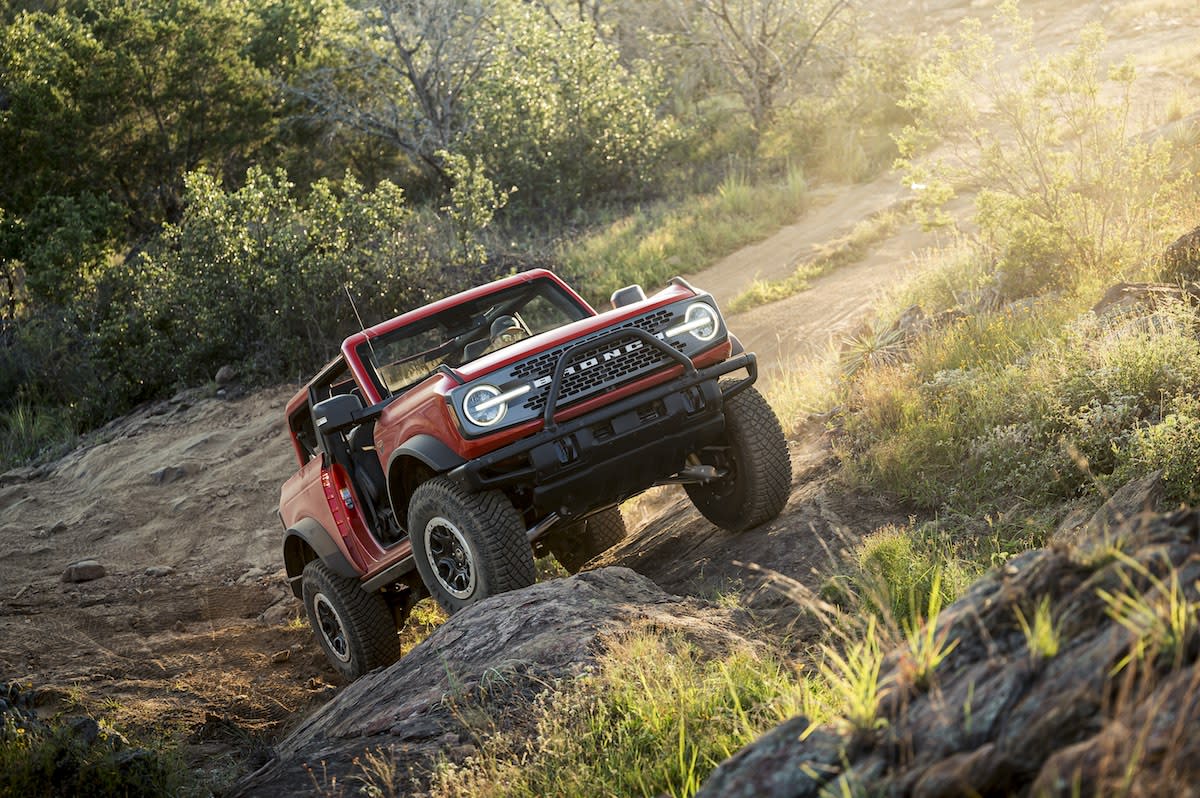
8. Raise the roof…please.
A quick demo confirmed that yes, it is relatively easy for a single human to take the doors off of the Bronco using a few simple tools. The doors are attached with two bolts; you remove them, click out an electrical wiring plug, place them in an included bag. Doors for the four-door model weigh around 50 pounds, and can fit in the trunk—they don’t need to be stored in the garage, unlike the Wrangler’s. The two-door model’s doors are heavier—54 pounds—and don’t fit in the rear. We were disappointed to discover that no, Dave Matthews does not automatically start playing from the speakers when you remove the doors.
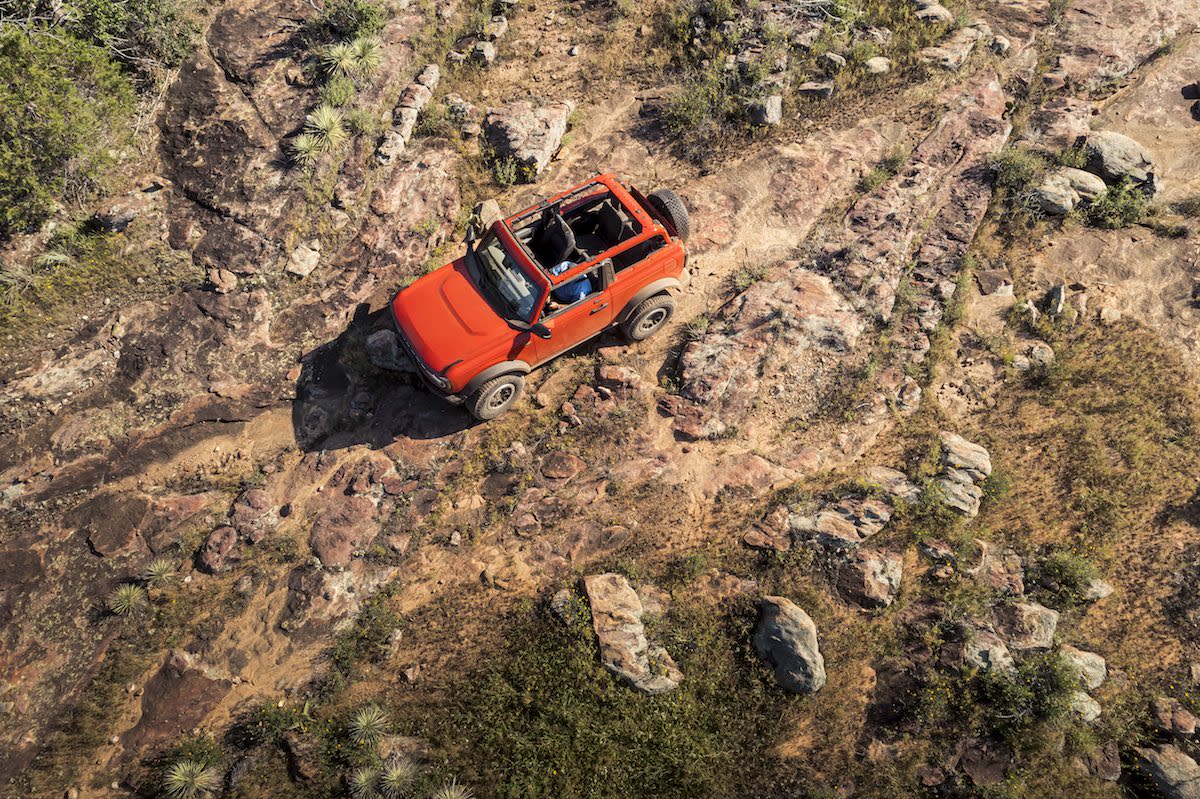
9. Consider the Sasquatch.
The options list is myriad: There are seven equipment levels to consider, and range from the more cosmetic and tech oriented (like our Outer Banks) to a package designed for high speed off-roading, called the Wildtrak. Ford folks were quick to point out that unlike the Wrangler, you can get the base model (from $29,995) and still opt for the most-off road capable package, called the Sasquatch ($4,995), which has 35-inch mud tires, two electronic locking diffs, a raised suspension, and more.
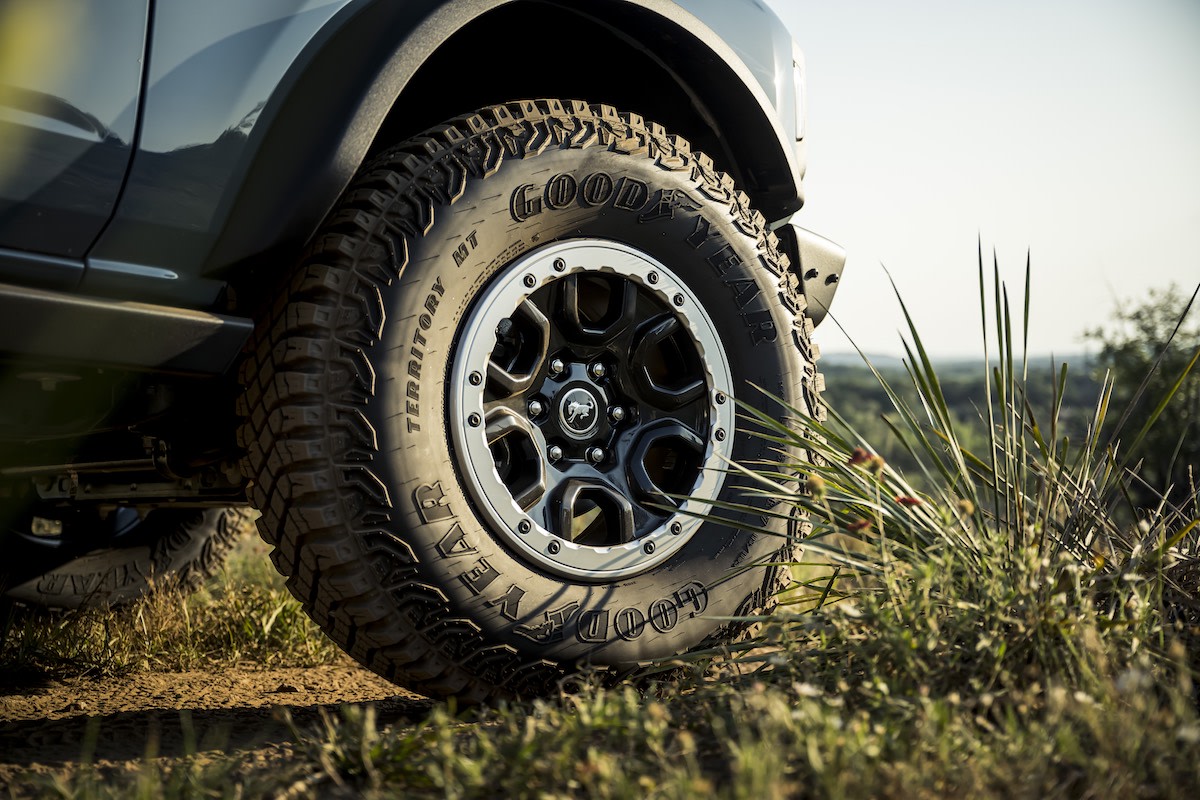
10. Want one? Get in line.
Ford says that of the 200,000 that made initial reservations, 125,000 followed through on a purchase. All of the model year 2021s are sold out, and if you are looking to get into a 2022, you may want to raise that hand now.
For access to exclusive gear videos, celebrity interviews, and more, subscribe on YouTube!
